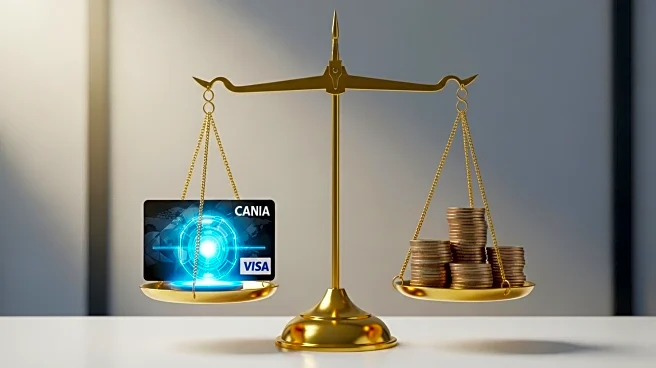What is the story about?
What's Happening?
President Trump has announced significant changes to the H-1B visa program, including a dramatic increase in fees. The new policy imposes a $100,000 fee for companies applying for the 85,000 visas available annually through a lottery system. The administration argues that reliance on foreign workers has reduced opportunities for domestic talent and poses a national security threat. The changes aim to prioritize higher-paid applicants and ensure the program is used to hire top-tier foreign workers. The policy may face legal challenges, and its impact on universities and nonprofit research organizations remains unclear.
Why It's Important?
The changes to the H-1B visa program could significantly impact U.S. industries reliant on foreign talent, particularly in science and technology sectors. Companies may face increased costs and challenges in hiring skilled workers, potentially affecting innovation and competitiveness. The policy reflects broader debates on immigration and national security, with potential implications for U.S. economic growth and workforce development. The announcement may influence public policy discussions and legal challenges related to immigration reform.
What's Next?
The policy changes are likely to face legal challenges, with stakeholders advocating for exemptions and adjustments. The administration may continue to refine immigration policies to address national security concerns and workforce development. The impact on universities and research organizations will be closely monitored, with potential implications for academic collaboration and talent acquisition.
Beyond the Headlines
The policy raises ethical and legal questions about immigration and workforce diversity. It may prompt discussions on balancing national security with economic growth and innovation. The changes could influence global perceptions of U.S. immigration policies and affect international collaboration.














